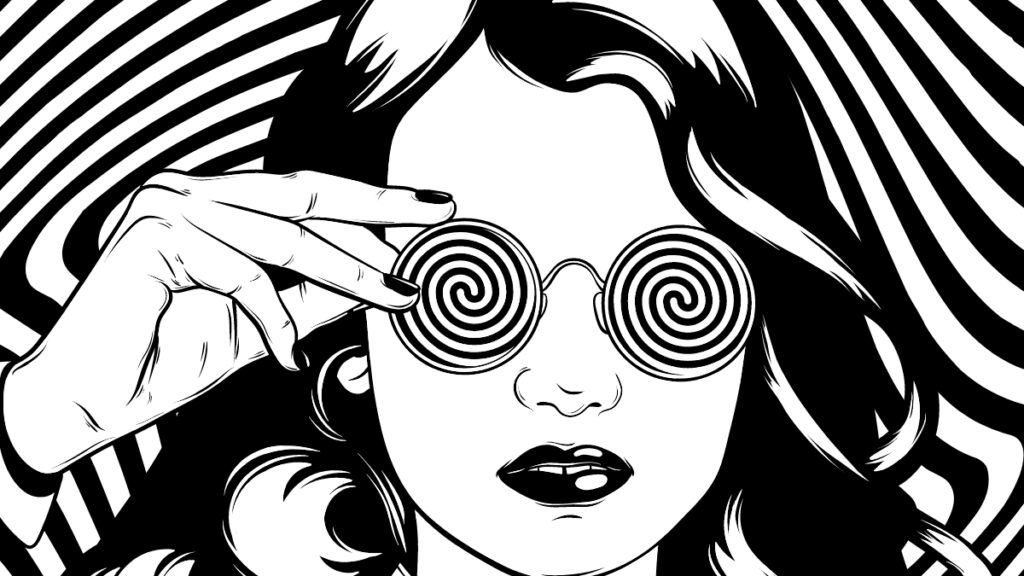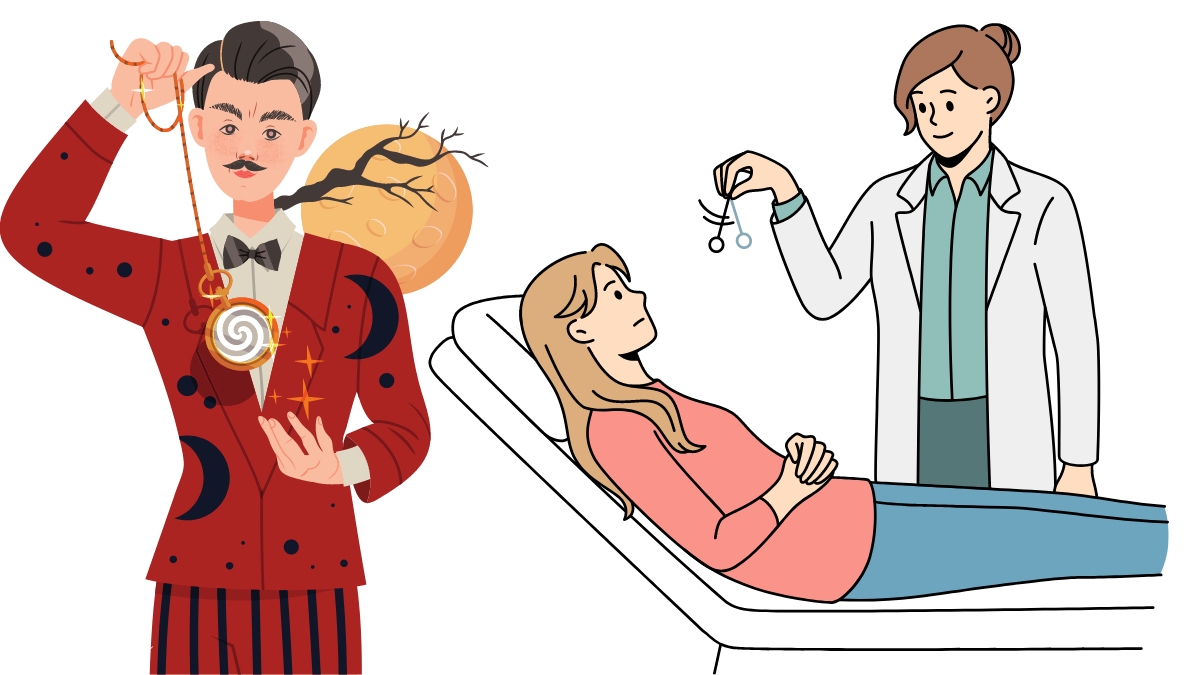Who created hypnosis? Hypnosis, a fascinating therapeutic tool, has intrigued people for centuries. With its ability to access the subconscious mind and induce a relaxed state of heightened suggestibility, hypnosis has captured the attention of medical professionals, psychologists, and entertainers alike.
Also Read: Is Hypnosis Real on Stage?
However, it is essential to understand the origins of hypnosis, its mechanics, and its potential for transformation. In this blog post, we will explore the evolution of hypnosis and its creator, uncover its underlying workings, and shed light on its various applications.
Who Created Hypnosis?

Hypnosis has been practiced and developed by various individuals throughout history. Franz Anton Mesmer and James Braid are two notable figures who made significant contributions to the understanding and development of hypnosis. However, it is difficult to attribute its creation to a single individual.
The Origins of Hypnosis
Ancient Practices
Hypnosis can be traced back to ancient practices where altered states of consciousness were induced for healing and spiritual purposes. Ancient cultures from Egypt to India utilized similar techniques to access deeper levels of the mind.
Franz Anton Mesmer
The term “mesmerism” is intricately linked to hypnosis, and its origins can be attributed to Franz Anton Mesmer. A prominent figure in the development of hypnosis, Mesmer believed in the power of magnetic fields in healing and utilized techniques resembling modern hypnotic induction methods.
James Braid
James Braid, a Scottish surgeon, played a pivotal role in separating hypnosis from mesmerism and establishing it as a legitimate therapeutic technique. Braid coined the term “hypnosis” and conducted extensive research, emphasizing its psychological nature rather than solely focusing on magnetic fields.
Understanding the Mechanics of Hypnosis
The Power of the Subconscious Mind
Hypnosis taps into the subconscious mind, which holds memories, emotions, and thoughts that can influence behavior and responses. By accessing this part of the mind, hypnosis allows for the exploration and reshaping of ingrained beliefs and patterns.
Inducing a Relaxed State
A crucial aspect of hypnosis involves inducing a state of deep relaxation. This enables the mind to become more receptive to positive suggestions, enhancing the effectiveness of therapeutic interventions.
The Role of Suggestions
During hypnosis, the mind becomes more susceptible to suggestions. By providing positive and empowering suggestions, hypnosis can help reshape negative thought patterns and behaviors, leading to personal growth and self-improvement.
Applications of Hypnosis
Clinical Hypnotherapy
Hypnosis is widely utilized in medical and mental health settings to address various concerns. From managing chronic pain and treating anxiety disorders to overcoming phobias, hypnotherapy has proven beneficial in helping patients improve their well-being and quality of life.
Personal Development and Self-Improvement
Hypnosis is a valuable tool in personal growth and self-improvement. By accessing the subconscious mind and reprogramming limiting beliefs and behaviors, individuals can boost self-confidence, enhance performance, overcome obstacles, and achieve personal goals.
Entertainment and Stage Hypnosis
Stage hypnosis is often performed for entertainment purposes. Talented hypnotists showcase the power of suggestion in front of live audiences, engaging volunteers in humorous and interactive experiences. It is important to differentiate between stage hypnosis for entertainment and therapeutic hypnosis for personal development.
Debunking Misconceptions about Hypnosis
Loss of Control
One common misconception about hypnosis is the fear of losing control. However, hypnosis is a voluntary state, and individuals retain control throughout the process. The therapist acts as a guide, and the individual can accept or reject suggestions as they see fit.
Mind Control
Contrary to popular belief, hypnosis is not a form of mind control. It involves collaborating with the therapist and being open to positive suggestions. The process respects an individual’s values, ethical considerations, and personal autonomy.
Entertainment vs. Therapeutic Hypnosis
It is important to differentiate between stage hypnosis, which is primarily for entertainment purposes, and therapeutic hypnosis, which focuses on personal growth and healing. Therapeutic hypnosis is conducted in a professional setting by trained practitioners who uphold ethical guidelines.
Conclusion
Who created hypnosis? Hypnosis, with its rich history and diverse applications, offers a powerful tool for personal transformation and healing. By understanding its origins and mechanics, individuals can embrace the potential of hypnosis to overcome obstacles, improve mental well-being, and achieve personal growth. Hypnosis continues to captivate audiences around the world, presenting new and exciting possibilities for unlocking the untapped potential of the subconscious mind.
We appreciate your time in reading who created hypnosis? If you have any questions or concerns, please don’t hesitate to reach out to us through our contact form. We are always here to assist you and value your feedback. Thank you once again for your support, and we eagerly await your response.
